Nearly two decades after Hurricane Katrina, the people of New Orleans and Mississippi’s Gulf Coast continue to be a testament to hope, ingenuity and perseverance. Communities have done more than rebuild — they are reimagining systems to create opportunity for all, especially children. While significant progress has been made, critical work remains to ensure that growth is truly equitable and lasting. As part of an ongoing reflection series called Rooted in Us, W.K. Kellogg Foundation (WKKF) staff and local leaders share their perspectives on community efforts, lessons learned and the investments still needed to build a future where all children can thrive. WKKF has been investing in New Orleans and Mississippi since the 1940s but deepened its commitment after Hurricane Katrina, supporting locally driven efforts that improve health, education and economic opportunity.
In this reflection, Agenda for Children CEO Jen Roberts and Director of Data and Research Teresa Falgoust share with Alyson Curro, a communications officer at the W.K. Kellogg Foundation, the organization’s critical role in restoring and strengthening early childhood care and education in New Orleans after Hurricane Katrina. From reopening child care centers in the days after the storm to leading long-term systems change across the city and state, Roberts and Falgoust reflect on what it takes to build an equitable early care system — one that can adapt in crisis, center families and providers and endure beyond any single disaster.
Curro: In the aftermath of Hurricane Katrina, what did early childhood care and education look like in New Orleans, and what did Agenda for Children step in to address?
Agenda for Children: After Hurricane Katrina in 2005, early childhood education in New Orleans was nearly obliterated. Hundreds of early learning centers were closed, families were displaced and educators were scattered across the country. There was no coordinated recovery plan, especially for families with young children.
Agenda for Children’s New Orleans headquarters was intact but inaccessible, so we shifted operations to our Thibodaux office, which became our temporary base of operations. Staff used printed directories to reconnect with providers, coordinated donations and responded to calls from families and national partners. We helped reopen centers, distributed supplies and set up temporary child care spaces in shelters across the state. We also leaned into our KIDS COUNT project, which helped us inform stakeholders about the status and well-being of children.
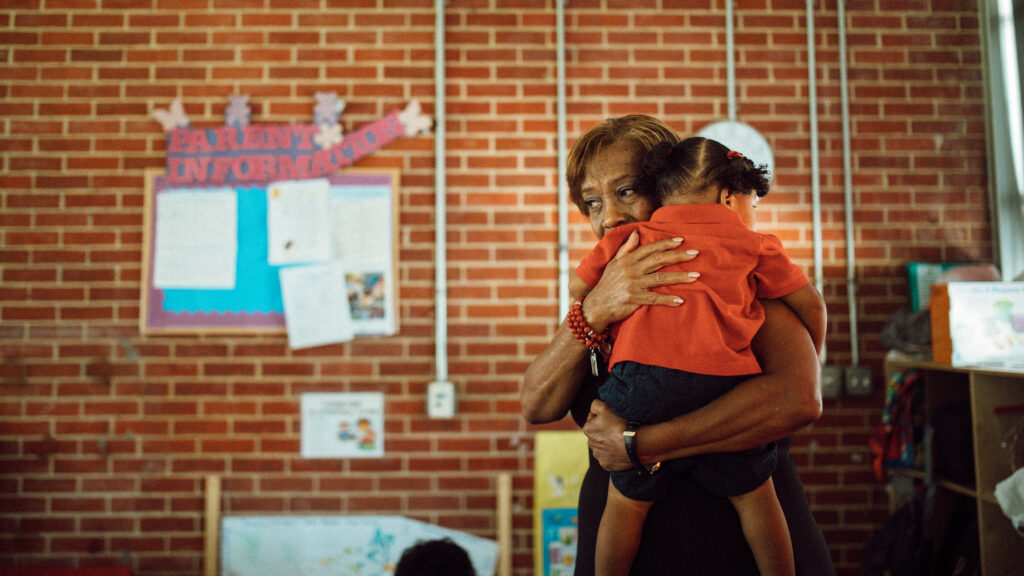
By February 2006, just 38 of 275 centers had reopened. Agenda helped launch the Greater New Orleans Rebuild Child Care Collaborative to support recovery, ensuring that programs returned stronger and able to meet newly established state quality standards. That work shaped Agenda’s long-term role as a systems leader in early care and education across Louisiana.
Curro: What have been the biggest turning points in the last 20 years—moments when the early childhood system began to shift from fragile to more connected and sustainable?
Agenda for Children: Three key moments come to mind.
The first was Act 3 in 2012, which created a statewide network for publicly funded early childhood education providers and established a common quality framework centered on the quality of interactions between teachers and children. Agenda served as one of the first lead agencies in the state and partnered with community leaders to form the New Orleans Early Education Network (NOEEN). For the first time, a designated role for local leadership in early care and education emerged, leading to improved program quality, a unified enrollment process for families and unprecedented local investments in early childhood education. It also brought together leaders from public schools, private schools, Head Start centers and private centers for the first time, creating an opportunity for mutual understanding and, ultimately, a shared vision for our city’s youngest residents.
The second was the launch of the City Seats program in 2018 and the passage of the early childhood education millage in 2022. What began as a pilot serving just 50 children quickly grew into a citywide initiative addressing critical gaps in infant and toddler care. Agenda manages the program, ensuring high-quality seats are matched to families who need them most. The millage, which Agenda helped champion and now implements, secures $450 million over 20 years. This funding has enabled us to expand access, support providers and strengthen the early childhood workforce in a manner that’s built to last and is recognized as a national model.
The third was COVID-19 and the sector’s response. As child care centers closed and families faced unprecedented uncertainty, Agenda mobilized rapidly to support providers, secure child care for frontline workers, and distribute more than $3 million in emergency funding and supplies throughout our region. Our work shifted quickly, ranging from virtual professional development to pioneering free COVID-19 testing for child care workers, and became a model for other states. The crisis cemented Agenda’s leadership in building a more resilient early care system, one that could not only survive disaster but also lead recovery. We used these lessons to guide the development of the State’s official “Hurricane Recovery Playbook,” where we were the only representatives from early childhood involved.
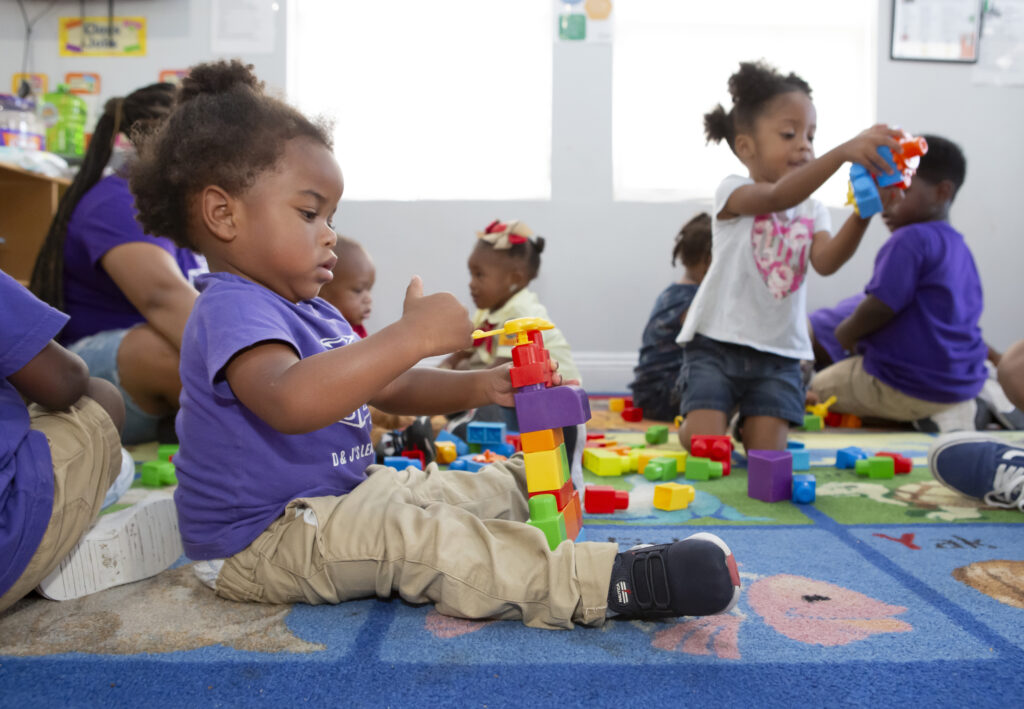
Curro: How has your work helped advance both access and quality, and why is equity the third pillar we can’t leave out?
Agenda for Children: We have helped increase access by expanding publicly funded child care seats, particularly through programs like City Seats. At the same time, we’ve focused on improving the quality of care by supporting coaching, training and continuous improvement for centers. With seed funding from the W.K. Kellogg Foundation, we launched the Early Childhood Opportunity (ECHO) fund in 2019, which has provided centers with grants for a range of expenses, from classroom materials to staff bonuses. Today, over 90% of early learning centers and schools in New Orleans are rated proficient or higher by the state’s quality rating system.
From expanding access to high-quality early learning for low-income families to directing resources where they’re needed most, we work to build a Louisiana where every child can thrive. Whether it’s developmental screenings, mental health support or workforce bonuses, our efforts are designed to remove barriers and give every child a strong start, regardless of their zip code, income or background.
Equity in early childhood education requires us to build a system that works for everyone, including children from all backgrounds and abilities, teachers and the small, women-owned businesses that comprise the majority of the local private child care sector. For too long, early childhood teachers have subsidized the early care and education system with their underpaid labor. And many of our child care businesses have operated on such razor-thin margins that their owners/directors have not taken a salary, or they’ve had to put off much-needed facility repairs.
We’ve tried to build a more equitable system by ensuring that children and families receive the support they need, whether it’s early identification and intervention for a child with developmental delays or making sure that every center has documents translated into the children’s home languages. We’ve also overseen a wage enhancement program that has put as much as $4,000 extra in the pockets of New Orleans early educators each year. We’ve supported child care centers through direct grants, leadership fellowships, ongoing coaching and some significant facilities grants to help them plan and execute facility improvements and expansions.
Curro: What does it take to sustain that kind of success, and what’s still needed to expand it across Louisiana?
Agenda for Children: Sustaining progress takes more than funding alone. It requires strong coordination, local infrastructure and consistent support for providers and teachers. Agenda aligns multiple funding streams, oversees quality assurance and helps centers access the resources they need to succeed. It also takes the humility of knowing that we will never be “done” in our quest to build an early care and education system that works for everyone.
Statewide, many communities still lack these supports. The expansion of high-quality early care and education will require additional investment, particularly in rural areas, as well as improved compensation for early educators and policy changes that facilitate the establishment and operation of high-quality programs. Our zoning reforms and facilities grants in New Orleans offer examples of what’s possible, but broader success will depend on state-level leadership and stable, recurring funding.
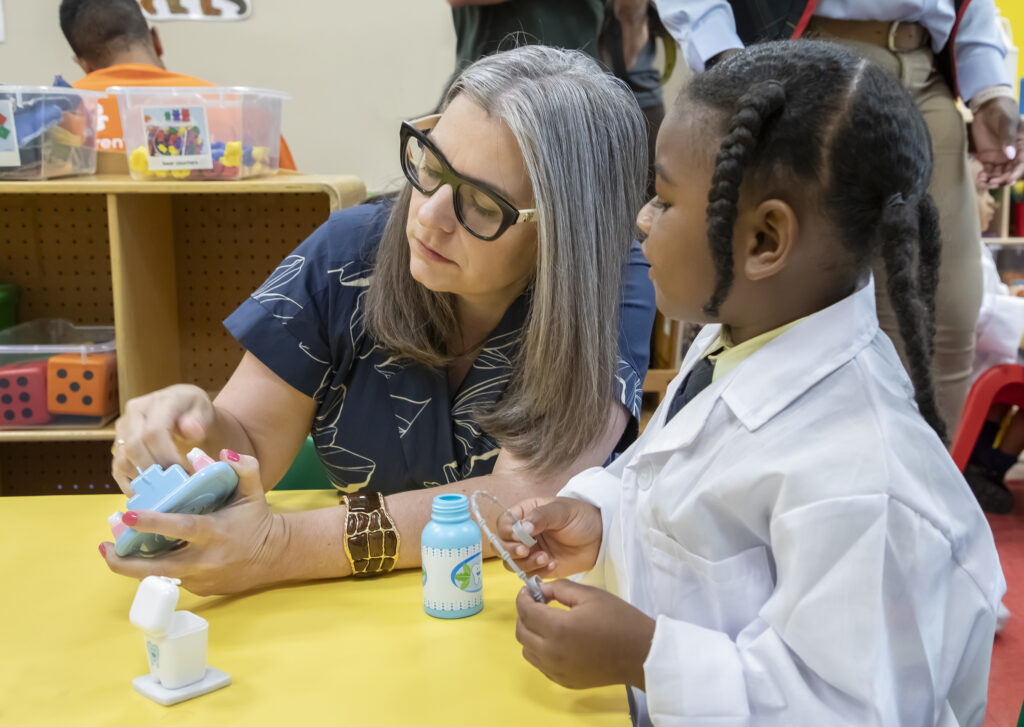
Curro: What are we still learning from Katrina, especially when it comes to centering families and providers in systems change?
Agenda for Children: Hurricane Katrina made it clear that families and providers weren’t part of any coordinated plan. While foundation and federal dollars flowed to rebuild the K-12 system, most centers had to rely on U.S. Small Business Administration loans, personal savings and often inadequate insurance payouts to rebuild their facilities.
Our founder, Judy Watts, frequently said in those early days, “A city with no children has no future.” Every day, we would hear from families who wanted to return home after the storm but could not because they didn’t have child care. These days, we regularly hear from families who simply can’t afford child care and are unsure how they will be able to keep a job, pay rent and meet their children’s basic needs unless they can find child care. Unfortunately, we’re seeing these challenges reflected in local births – between 2015 and 2023, the number of births to mothers in New Orleans fell by 25%. That kind of decline in less than a decade means we all need to redouble our efforts to make New Orleans a child-centered city.
Today, we develop programs and policies based on direct input from families and educators, and we continually improve systems based on the feedback we receive.
We’ve also learned that preparedness isn’t just about checklists but about designing systems that can adapt under stress. That means removing red tape, investing in mental health and emergency response, and creating feedback loops that surface challenges early.
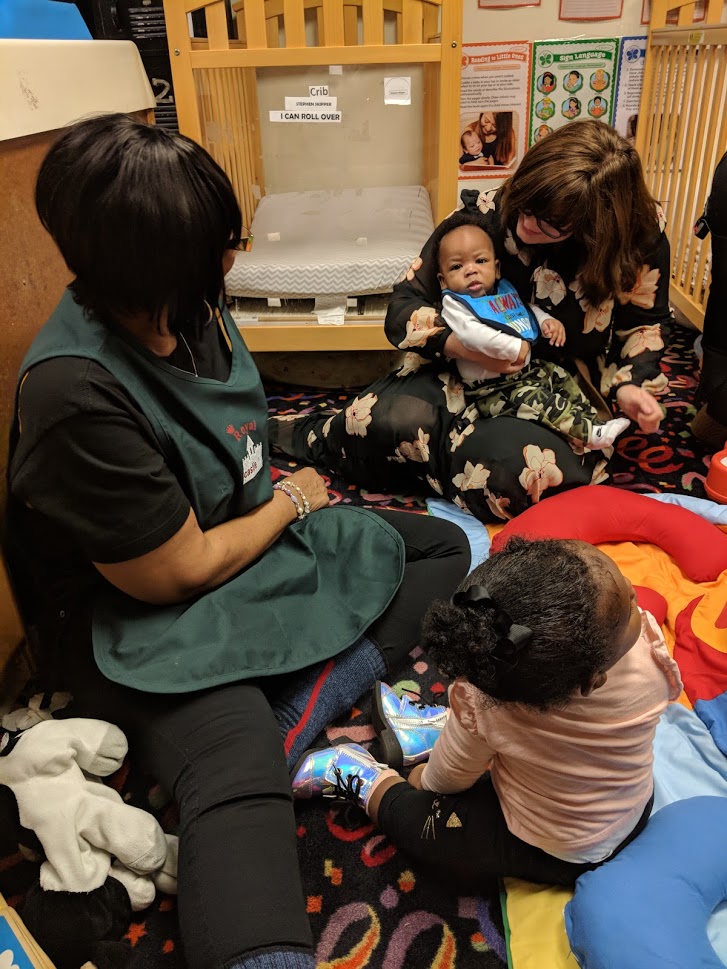
Curro: What’s one advocacy lesson that still sticks with you, and what advice would you give to others doing this work in changing political environments?
Agenda for Children: Our most successful advocacy has been built on long-term trust, clear communication and consistent delivery. Our 40-year history of credibility makes a real difference.
To others doing this work: build coalitions early, focus on both the policy and the follow-through and never lose sight of who the work is for. Data helps, but stories and partnerships are what move decision-makers. We often say that the Agenda for Children is “for children,” and we need to lead with all children in mind.
Curro: What’s your vision for the future of early childhood in New Orleans and Louisiana?
We want every child in Louisiana to have access to affordable, high-quality care from birth and every educator to have the tools, training and compensation they need to stay in the field. We also want to make sure that families have the resources they need to provide their children with economic stability and be their child’s first and best teacher and advocate. Getting there will require stable funding, smarter policies and local partnerships that are equipped and empowered to lead.
Want to learn more about Agenda for Children and its efforts to build an equitable early childhood system in New Orleans and across Louisiana? Visit agendaforchildren.org to explore their programs, policy leadership and how you can support a future where every child has access to high-quality early care and education — no matter their zip code.
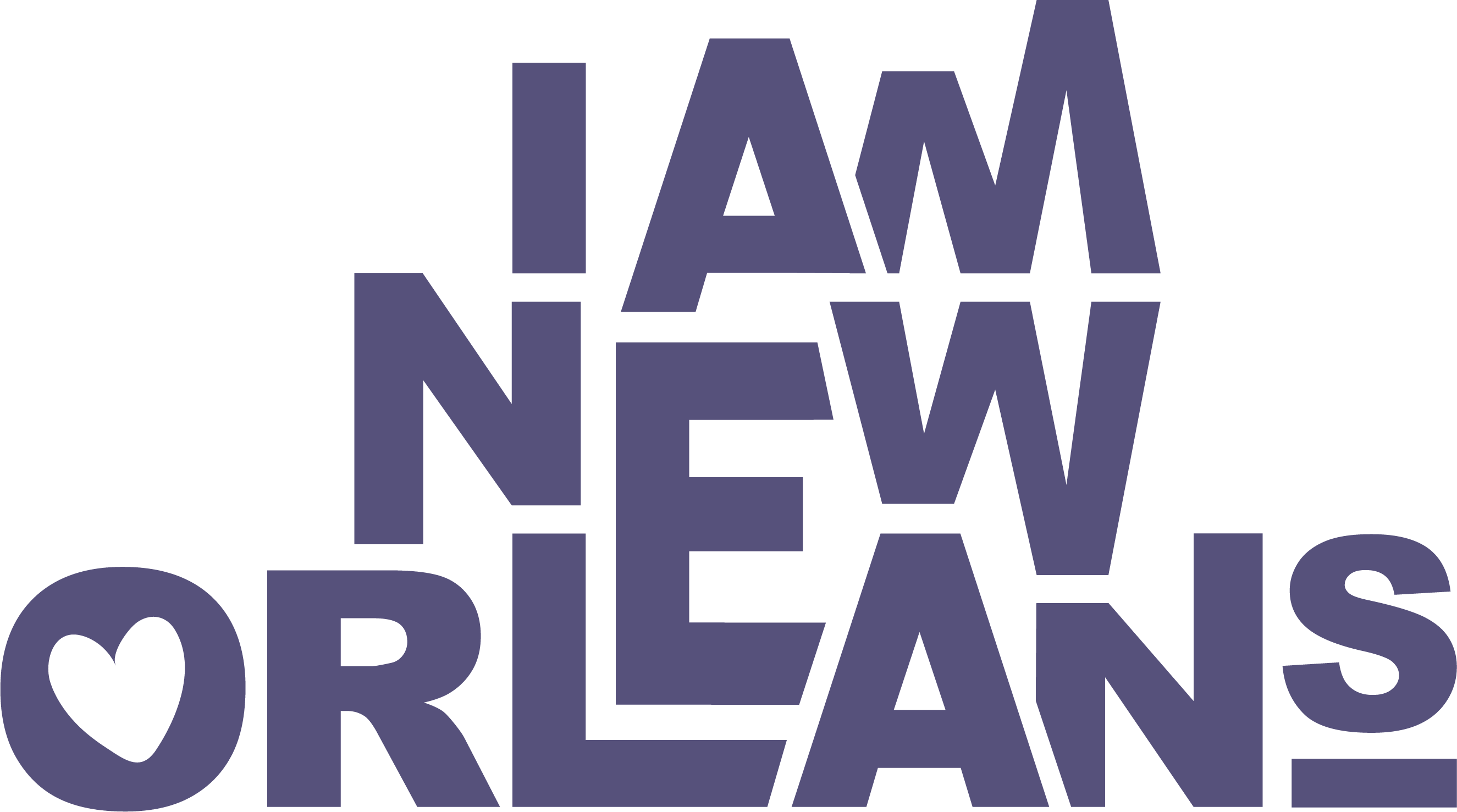
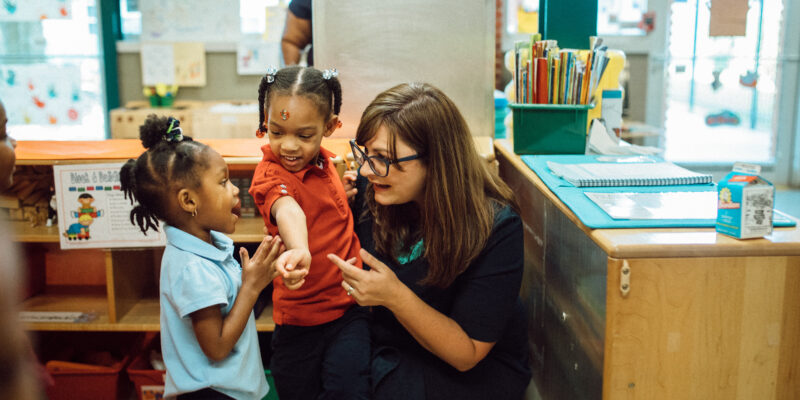
Comments